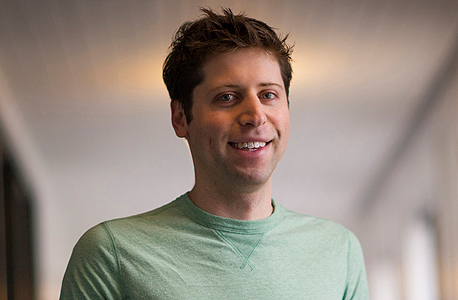How to Nail Your Y Combinator Interview
Advice from Y Combinator grad, “class” of 2017
Congrats on applying to Y Combinator (YC), the top startup accelerator in the world. Airbnb, Dropbox, Stripe, and Instacart are just a few in a long list of companies with a valuation of more than $80 billion that got their start on the program. If you have a great startup and haven’t already applied, I highly recommend you do so ASAP. Y Combinator will be a life changing experience for you and your team.
- Recipe-to-Shopping List Startup Joins Unilever’s Singapore Accelerator
- Venture Capitalist Sees a Window of Opportunity for Tech IPO Hopefuls
- Investments in Israeli-linked Startups Growing in Size, Report Says
This is my guide on how to pass the Y Combinator face to face interview in Mountain View, the final stage before getting accepted into Y Combinator. This is exactly what we have done to prepare for and pass our own interview.
 Y Combinator
Y Combinator
The entire interview lasts only 10–15 minutes, during which you are bombarded with questions by four YC partners. Preparing for this interview is a great opportunity to answer core questions about your startup and align yourself, your team, and your partners with your startup’s goals. You will find that going through this process greatly improves your focus and clarity of thought.
1. First, you need to understand what Y Combinator is looking for in a startup and which ones get accepted. In his 2017 annual letter, Y Combinator President Sam Altman wrote:
• Will this company build something lots of people really love?
• Will this company be easy to copy?
• Will these founders develop into “forces of nature?”
• Does this company have a clear and important mission?
Basically, you need to be able to convince the partners that you’re building something people love, which is demonstrated by traction;
that there is a large addressable market; that the founders are “forces of nature” — determined, able to block out noise, and have a sense of urgency — this is also best demonstrated by traction and past track record.
2. Understand the three basic questions YC expects you to nail in any investor pitch, and prepare your answers accordingly. These are:
• What your company does?
• How big is your market?
• How much traction do you have?
These three questions are your sword, and you should always have them polished, honed and ready for battle.
 Y Combinator President Sam Altman
Y Combinator President Sam Altman
3. Michael Seibel, CEO of YC, is incredible. He is the Professor Xavier of YC’s mutant startup school. You should watch this video with Michael Seibel, CEO of YC, explaining how to pitch investors. When explaining how to pitch investors, he is actually saying how YC would like to get pitched.
4. Google “Practice Quetsions for Y Combinator Interview”. Collect all the questions you find into a document, and answer all of them. This is your starting point. Keep coming back to the document, removing any answer or detail that is not essential. Your final answers must be simple, concise and accurate. Make sure you get to the point quickly. Remove the fluff, YC has really low tolerance for BS.
5. Sit down with your team to decide, ahead of time, who is going to answer each question. Typically, the CEO takes the lead while the CTO tackles the hardcore technical stuff. Founders׳ dynamics is key. YC teaches that conflict between founders is one of the top reasons for startups’ failure. Don’t cut into each other and leave your ego aside. The entire team must work to demonstrate that the CEO is formidable enough to represent the startup.
6. Practice practice practice. A CEO should practice fielding questions about the company in as little time as possible. This means speaking in a coherent accurate manner with no pause for thinking. You need to know you have the questions pertaining to your Product, KPIs, users and market locked and loaded.
7. I highly recommend you read the Y Combinator Startups library, particularly the articles in ‘the basics’ section. This is the distilled wisdom of YC and you need to understand it.
Barak Ben Ezer is a Blockchain expert and the founder and CEO of NEEMA, a digital banking platform for unbanked populations, a Y Combinator company (W2017).
The article was originally published on Medium .



